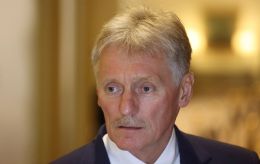EU finds way to override Orban's veto on sanctions against Russia - Bloomberg
 Photo: Orban-Putin's veto will be invalid (Getty Images)
Photo: Orban-Putin's veto will be invalid (Getty Images)
The European Union is exploring ways to expand sanctions against Russia without the support of all 27 member states. Such a maneuver would allow the EU to extend the measures despite Hungary's opposition, Bloomberg reports.
The European Commission is weighing whether it can convert the sanctions into trade measures that do not require unanimous consent, the sources said. Trade measures usually require a qualified majority for approval.
The next extension of sanctions against Russia is due in July. Hungary has repeatedly threatened to veto the measures. It has done so in the past, before backing down amid negotiations with the commission on often unrelated issues.
Important sanctions
Some of the EU's sanctions on Russia include restrictions on exports of technology used in or needed for weapons, as well as bans on imports of goods, including steel products, most oil, and aluminum.
The bloc will need to resume other measures, including freezing the assets of the Russian central bank worth approximately 200 billion euros and listing hundreds of individuals, courts, and organizations that helped Moscow in its war against Ukraine.
Another option would be a coalition of member states willing to reimpose sanctions domestically, according to the sources. Most of the frozen assets of the Russian central bank are held through the Belgian clearing house Euroclear.
Orbán's position
So far, the EU has adopted 16 packages of sanctions against Russia and is currently working on a new package of measures.
Hungarian Prime Minister Viktor Orbán has maintained close ties with Russia's Vladimir Putin and has argued that Russia does not pose a military threat to the EU. Earlier this year, Orbán briefly delayed a separate extension of sanctions after US President Donald Trump's victory in November.
The Trump administration has so far stuck to its sanctions, although it has made it clear that the measures could be part of negotiations. It has been suggested that some relief could accompany a deal between Russia and Ukraine. But the sanctions could be extended if Moscow continues to refuse to abide by the ceasefire to which Kyiv has already agreed.
So far, most European leaders have strongly rejected any easing of sanctions against Moscow, advocating instead for increased pressure on Russia.
Hungary has also blocked the start of Ukraine's negotiations with the European Union.

